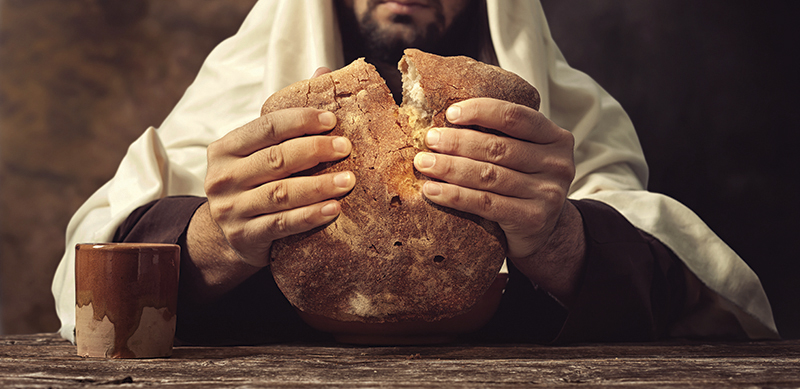XXII SUNDAY IN ORDINARY TIME - Mark 7:1-8,14-15,21-23
The gospel presents the Pharisees and some scribes quarrelling with Jesus on account of his disciples because they did not the tradition of washing their hands before eating. In Zambia, people wash their hands before and after a meal. It is a question of good manners and mainly of hygiene, which has no religious significance. It was not so for the Jews. Going for their daily tasks, they would be in contact with a great variety of people, many of whom did not keep the rules of purity. So their washing was for purification. This is the reason why they questioned Jesus, giving him the opportunity to challenge them and to point out the futility of that external purification. There is always the danger of reducing religion to the keeping of rituals, which give an appearance of holiness, in spite of not touching the heart and not leading to conversion.
The second reading presents the answer to a question that arises from all the three readings: what is pure and unspoilt religion? There are people who see religion and faith as being the opposite of each other. For them, religion is the human attempt at being justified by their actions, while faith is a total reliance on God, recognising that we are justified by his grace. And so they uphold faith as paramount while considering religion as a vain attempt at salvation. However, it seems that St. James, in his letter, did not see things in that way. Religion refers to establish a relationship with God, which is always a gift of his grace that implies and demands an attitude and a certain type of behaviour. Faith demands that we answer God’s call and that we remain committed to an attitude of listening and answering throughout our lives.
In the second reading, St. James stresses what is essential:
- Listen to God’s word, accept and submit to it;
- put it into practice (“and not just listen to it and deceive yourselves.” - James 1:22)
- pay attention to all those who suffer and come to their help;
- “keeping oneself uncontaminated by the world” (James 1:27).
In the first reading, Moses teaches the people to keep God’s commandments, if they want to have life. We are continuously being contaminated by the wisdom of the world, which presents power, wealth, glory and pleasure as the greatest values and the easiest and quickest way for a life full of happiness. However, the ways of the world are treacherous and full of lies.
In the gospel, answering the Pharisees, Jesus presents the false values and attitudes that spoil and soil our hearts: “For it is from within, from men’s hearts, that evil intentions emerge: fornication, theft, murder, adultery, avarice, malice, deceit, indecency, envy, slander, pride, folly. All these evil things come from within and make a man unclean” (Mk 7:21-23).
Psalm 15 presents essential attitudes needed to be accepted in the presence of the Lord:
Lord, who shall dwell on your holy mountain?
He who walks without fault;
he who acts with justice
and speaks the truth from his heart;
he who does not slander with his tongue.
He who does no wrong to his brother,
who casts no slur on his neighbour,
who holds the godless in disdain,
but honours those who fear the Lord.
He who keeps his pledge, come what may;
who takes no interest on a loan
and accepts no bribes against the innocent.
Such a man will stand firm for ever.





